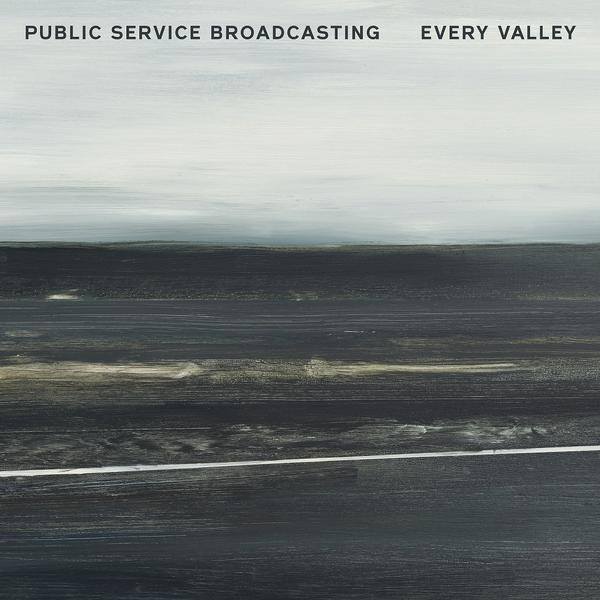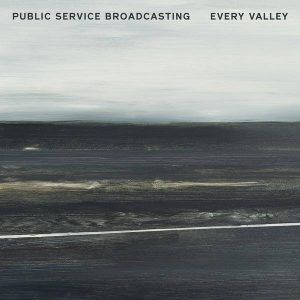Interview de Public Service Broadcasting : le groupe explore le Brexit, Trump et l’industrie du charbon sur le nouvel album Every Valley
Pour le troisième album du groupe, le leader J Willgoose Esq a décidé d’explorer les vies de personnes ordinaires qui persistent contre toutes attentes. Le voyage l’a emmené au cœur des vallées galloises, où la fin de l’exploitation minière se ressent toujours.
Hazel Sheffield
J Willgoose Esq, leader du groupe Public Service Broadcasting, n’avait jamais rendu visite aux communautés minières du Sud du Pays de Galles avant de se décider d’écrire un album à leur propos. Mais aussi, il n’avait jamais visité les confins de la galaxie quand il a écrit le deuxième album du groupe, The Race For Space, en 2015.
Il a, cependant, passé des années à explorer les limites de l’exploit humain en samplant des enregistrements d’archive du British Film Institute et en les mettant en musique. Pour son dernier projet, il a décidé de tourner son attention vers les vies des personnes ordinaires qui persistent contre toutes attentes. “Je voulais écrire sur les actes héroïques de tous les jours”, dit-il au téléphone depuis chez lui dans le Sud de Londres. “Cet album parle de l’exploitation minière d’une manière, mais il parle de la communauté, la perte et gérer la disparition de quelque chose qui te définissait auparavant”.
Après s’être décidé sur les vallées, Willgoose s’est inquiété de foncer dans les communautés de village soudées et tenter de raconter leur histoire. Le mécontentement à propos du déclin de la manufacture, dont la fermeture des mines et des aciéries, est profondément ancré dans le Sud du Pays de Galles.
On lui a rappelé cela pendant le référendum, juste quelques semaines après avoir contacté le Ebbw Vale Institute, centre artistique construit en 1849 par la société locale d’aciérie, à la recherche d’un endroit où répéter et enregistrer.
Le lendemain du vote, un journal national a étalé que Ebbw Vale, ville “couverte d’argent européen”, était également l’endroit avec la plus grande proportion de votes pour quitter l’Union Européenne du Pays de Galles, à 62%. Il regrettait que le financement européen derrière les routes, voies de chemin de fer et programmes d’apprentissage locaux qui essayaient de rendre la vie meilleure malgré un taux de chômage à 40%.
Willgoose dit : “Le référendum m’a fait penser aux jeunes [qui sont] tellement privés d’un droit qu’ils lanceront le dé de leur propre avenir”.
Quand il s’est rendu sur place, il a découvert un joli village gallois dans un état de délabrement, où les adolescents enfourchaient des BMX sur le parking du Tesco du coin le vendredi. “J’ai probablement fait l’équivalent du Sud de Londres ado”, dit Willgoose. “Mais je ne peux m’empêcher de penser qu’il y avait plus d’opportunités”.
“C’est un peu une ville industrielle lugubre”, explique Chris Phillips, l’organisateur d’événements du Ebbw Vale Institute. “Paroissiale, vraiment. On nous a oublié tellement longtemps, qu’on a développé une mentalité de siège”. Phillips pourvoit aux besoins des goûts locaux en réservant des groupes tribute de Nirvana et Thin Lizzy pour jouer dans la salle de 300 places de l’Institute, qui accueille des cours de yoga, un café et des services de prévention contre les drogues et l’alcool de la jeunesse. “Ils sont assez occupés”, déclare Chris.
Quand Public Service Broadcasting ont dit qu’ils voulaient enregistrer quelque part au Pays de Galles, leur management a suggéré des somptueux studios gallois comme Rockfield, où Queen a enregistré Bohemian Rhapsody, ou Monnow Valley, qui ont accueilli des groupes comme Oasis, les Manic Street Preachers et Iggy Pop. Mais Willgoose voulait quelque chose de plus DIY. Ils sont parvenus à un accord avec Phillips pour construire un studio dans la salle de concert pendant tout le mois de janvier. Phillips dit qu’ils ont sauté sur l’occasion : “On a dû déplacer les cours de Zumba et de jeté en patchwork et garder tout le monde lié par le secret”.
Pendant ce temps, Willgoose a commencé à bûcher à la South Wales Miners’ Library de l’université de Swansea. Il voulait trouver les héros de l’ombre des grèves des mineurs, ceux qui tenaient la communauté ensemble alors que leur économie locale s’effondrait autour d’eux.
Sian Williams, bibliothécaire assistante, a aidé Willgoose à découvrir une interview de Christine Powell réfléchissant aux grèves de 1984 et 1985. On peut l’entendre ouvrir la voie aux femmes sur They Gave Me A Lamp : “I didn’t see any reason why I shouldn’t be out there doing what I was doing, why I shouldn’t be in the support group”.
Williams parle avec animation de comment Public Service Broadcasting contribuent au but de la bibliothèque de partager leur matière à un public plus large, particulièrement dans le climat actuel. “Si on regarde certains des orateurs fantastiques et écoute leurs messages depuis les années 1920, la majeure partie sont les mêmes qu’on entend aujourd’hui, juste dans un contexte différent”, explique Williams. “J’espère que cela donnera de la force aux gens”.
Willgoose s’est procuré autant qu’il pouvait des enregistrements de la bibliothèque et des archives de films à Bristol et Londres, mais il avait besoin de quelque chose de plus. “La matière n’était pas vraiment là pour les histoires qu’il voulait raconter. Je n’allais pas trouver une lecture du poème de Idris Davies qui aurait été aussi bonne qu’avoir James Dean Bradfield le chanter”, dit-il. Il a été récompensé quand Bradfield, leader des Manic Street Preachers, a enregistré la version de Gwalia Deserta par le poète gallois Idris Davies qui est devenu Turn No More.
Public Service Broadcasting est retourné à l’Ebbw Vale Institute en juin, après que le disque ait été envoyé au pressage, pour jouer deux concerts à guichets fermés. Phillips et Williams étaient tous les deux là. “J’étais en fait très émue”, se souvient Williams. “J’étais juste tellement bouleversée par la sensibilité et la réaction de mineurs, dont certais avaient voyagé d’assez loin”.
Wayne Thomas, ancien mineur qui a travaillé au fond des puits pendant 20 ans, était aussi présent. Thomas est devenu le directeur d’une mine proche quand les mineurs l’ont mise en co-propriété. Il se souvient de se mettre en grève jeune homme avec une famille à nourrir.
“Mettre fin aux mines, c’est une chose, mais le vrai truc, c’était écraser les syndicats. Ça ne valait pas ce qui a coûté à ma communauté”, déclare-t-il. “Pour nous, c’était une affaire de combien les gens étaient désespérés, ils prenaient des jobs de nettoyage, de mise en rayon, à attendre que des trucs se pointent”.
Thomas dit que tout à coup, sans offir d’alternatives, le gouvernement a mis un terme à l’industrie minière : “Des quarantenaires qui étaient bien respectés dans leur industrie étaient au chômage pour la première fois de leur vie. Ils ne savaient pas comment gérer ça”.
Sur la chanson Progress, Tracyanne Campbell du groupe écossais Camera Obscura répète la ligne, “I believe in progress”, sur une instrumentalisation entraînante inspirée par Kraftwerk, les musiciens machines métalliques venus d’Allemagne qui célébraient toutes les choses industrielles.
Willgoose savait que cet album devait explorer les complexités du progrès, équilibrant le déclin inévitable des combustiles fossiles avec le besoin d’idées sociales progressives. “C’est l’épée à double tranchant ultime, la poussée continuelle derrière la race humaine”, dit-il. “Tu ne peux arrêter le progrès, même quand des communautés entière sont affectées d’une manière négative. Mais tu peux voir la société dans l’ensemble et te souvier des gens qui sont abandonnés”.
La voix de Christine Powell revient nous parler de ces personnes abandonnées sur Mother Of The Valley. Elle regrette la mort de l’industrie et son impact sur la ville : “You get to realise what you mean about the death of a village et about the pit being the mother of the village. It sounds romantic, but it’s not romantic at all. It’s true”.
Willgoose explique que c’est ainsi que les communautés laissées pour compte, désespérées d’obtenir des alternatives, deviennent les victimes des sortes de messages populistes colportés par Nigel Farage et Donald Trump. Wayne Thomas acquiesce. “Pour moi, la lutte n’est pas finie”, dit Thomas. “Cet album nous rappelle que ce n’est pas une période passée. Pas quand de vieux croûtons comme moi en gèrent encore les conséquences”.
Every Valley, le nouvel album de Public Service Broadcasting, sort le 7 juillet sur Play It Again Sam.
Traduction : 21 janvier 2024




